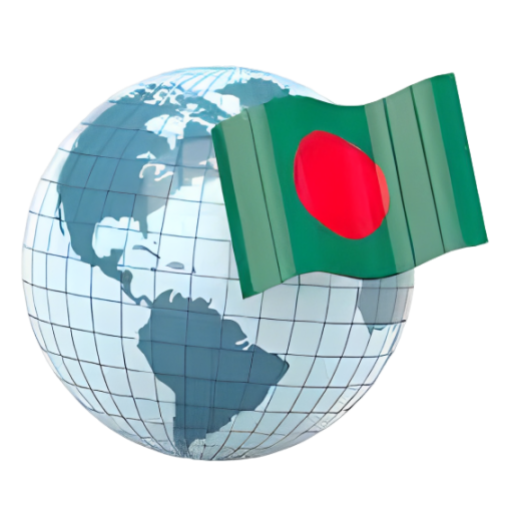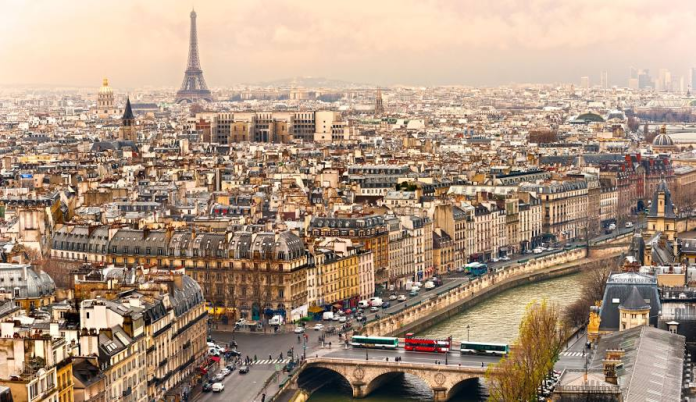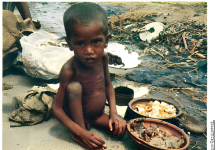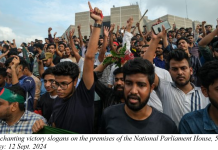Humans in all phases of their evolution, growth, and development move from one place to another basically for food. This mobility process is not, as such, new; it is as old as human history. Colonial and post-colonial theorists trace this process through antiquity, the classical, Middle Ages, and modern ages.
 In ancient times, people depended upon hunting for survival. Through hunting animals, and gathering fruits, they discovered new lands and kept the process of mobility dynamic. Basic human needs such as food, clothing, shelter, healthcare, education, recreation, and social security sustain this dynamic process.
In ancient times, people depended upon hunting for survival. Through hunting animals, and gathering fruits, they discovered new lands and kept the process of mobility dynamic. Basic human needs such as food, clothing, shelter, healthcare, education, recreation, and social security sustain this dynamic process.
People move from developing to developed countries for better living conditions. Even people of developed countries move to more developed countries for an improved quality of life.
Kapil Kafi (pseudonym)—the cynosure of this story—moved from Bangladesh to find his final home in Paris. Through structured interview, Kafi reflects on his odyssey from Bangladesh to Paris.
Kafi—born, brought up, and schooled in Dhaka—decided to settle in Europe. He obtained his master’s degree in 2005 in Management from Jagannath University and embarked for Poland on a student visa. He enrolled in an MBA programme at the University of Warsaw.
But he studied for three months only because pursuing an MBA was not his primary objective. His goal was to find a permanent home in a developed country in Western Europe. Factors such as cold weather, lack of job opportunities, uncertain work permits, Polish strict laws and rules to obtain permanent residency, and the allure of Western Europe led him to leave Poland. Eventually, he and a friend of him found a way to leave Poland and land in a Western European country.
He paid Taka 100,000 (equivalent to approximately US$840) to a broker who helped him illegally enter Germany. He stayed there only two days at his relative’s house in Berlin. His friend was also with him.
Now in his dreamland—a developed country in Western Europe—Kafi learned from various sources that Germany has strict citizenship and immigration laws. If he failed to obtain permanent residency, he would be sent back to Bangladesh. He feared deportation, so he devised an alternative plan. He left Berlin for Paris and his friend went to Madrid in Spain to live with his brother. This is how Kafi arrived in Paris in 2006 and he has been living there ever since.
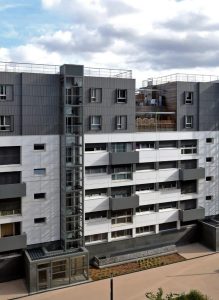 Kafi lives in social housing. Comparatively cheap, it is a two-room apartment, and he pays € 500, i.e., 25% of his income for house rent. He lives alone in his apartment though he is married and has a 5-year-old son in Bangladesh. Every month, he sends money to his family composed of his parents, his wife, his son, and his younger brother. Meanwhile, he has managed to prepare the necessary paperwork to bring his wife and son from Bangladesh.
Kafi lives in social housing. Comparatively cheap, it is a two-room apartment, and he pays € 500, i.e., 25% of his income for house rent. He lives alone in his apartment though he is married and has a 5-year-old son in Bangladesh. Every month, he sends money to his family composed of his parents, his wife, his son, and his younger brother. Meanwhile, he has managed to prepare the necessary paperwork to bring his wife and son from Bangladesh.
Kafi did not get any jobs initially in Paris. He sought political asylum, and waited for 10 years. After granted political asylum, he got a job in a bar. He works in a bar as a barman. He works five days a week and the other two days are his days off. He works both the morning shift and evening shift. He works in the morning shifts from 6:30 am to 11:30 am and in the evening shifts from 11:30 am to 11:30 pm.
Kafi works at a minimum wage of €12 per hour. He earns approximately € 450 per week and € 2000 a month. He gets 20% more than his regular wage when he works overtime. He often works on public holidays, for which he is paid double. He receives one month of vacation yearly and also gets sick leave with pay under a prescription from his family doctor. He has health insurance, which pays 40% while the rest is covered by the government.
Kafi finds Paris an idyllic locus, culturally and intellectually rich. Around one million Bangladeshis live in Paris. Kafi finds many institutions, restaurants, grocery stores, and schools run and owned by Bangladeshis to serve and support this large population. Almost all Bangladeshi stores are located in the Gare-du-Nord area. The Porobus and the Shabdaguchha are two magazines he knows are published in Bangla in Paris.
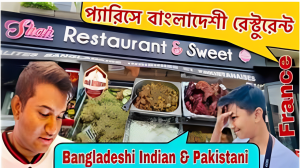 Kafi knows many Bangladeshi associations active in Paris. The key associations are the Barishal Division Association, the Faridpur Division Association, and the Sylhet Division Association. These associations organize various cultural events and programmes throughout the year.
Kafi knows many Bangladeshi associations active in Paris. The key associations are the Barishal Division Association, the Faridpur Division Association, and the Sylhet Division Association. These associations organize various cultural events and programmes throughout the year.
Kafi naturally attends key cultural functions such as the 21st February, Eid festivals, and Pohela Boishak, and social events like picnics, and outings. Additionally, several weekly Bangla schools teach Bangla, and three mosques are financed, managed, and controlled by Bangladeshis.
Kafi tells us that almost all Bangladeshi children study in the French language. English medium schools in Paris are expensive, but French is free. That is why, Bangladeshi children study in French medium schools and learn English as a foreign language. He has decided to enroll his son in a French school.
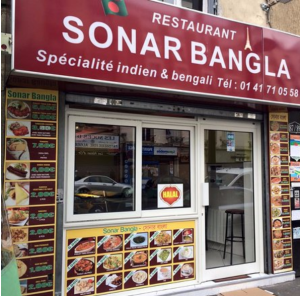 Kafi is very friendly. He has around 15/20 friends with whom he interacts and hangs out. However, he does not have any relatives in Paris. He likes traveling and visits Bangladesh two times a year. To quench his thirst for travel, he has visited famous places in France such as Kann, Normandy, Lyon, Rennes, and Toulouse.
Kafi is very friendly. He has around 15/20 friends with whom he interacts and hangs out. However, he does not have any relatives in Paris. He likes traveling and visits Bangladesh two times a year. To quench his thirst for travel, he has visited famous places in France such as Kann, Normandy, Lyon, Rennes, and Toulouse.
In Paris, Kafi has faced several challenges. The language barrier is one of the biggest challenges he has faced. To him, French is a difficult language with every sentence crammed with grammar. He has struggled to learn French and is still learning it.
Another challenge he has encountered is joblessness. Without work permits, it was difficult to get a job in Paris. Workers without work permits are paid poorly and deprived of other facilities such as medical leave and sick leave. Conversely, after obtaining legal documents, a worker gains advantages and facilities. If a worker loses their job, they receive 80% of their salary for around 2 years. After getting legal papers, s/he would receive more than €600 monthly, known as RSA. The government helps pay rent for those who have no jobs. Moreover, there is a child benefit, free doctor, free medicine, and free operation. Besides, those who are unemployed receive a festival allowance.
To conclude, Kafi views both the positive and the negative of Paris. The positive, however, obscures and eclipses the negative. This is why, Paris is an ideal city for living with family.
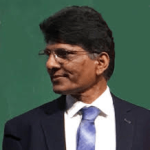
Mohsin Ali
Mohsin Ali—a serious learner—holds multiple degrees. He has earned four master’s degrees such as an MA in English Literature, an MA in English Language Teaching, an MA in Globalization and International Development, and an MA in Education. He possesses the knowledge and skills required to conduct rigorous research. His research interests include international development, education for social transformation, refugee integration issues, identity politics, and fragile state issues. Proficient in cultural and literary theories, Mohsin has authored books and articles and presented research papers at conferences hosted by Carleton University in 2018 and York University in 2019. He is a founding director of the Centre for Global Development Re/conciliation, and the Institute for Justice, Decolonization and Peace.
